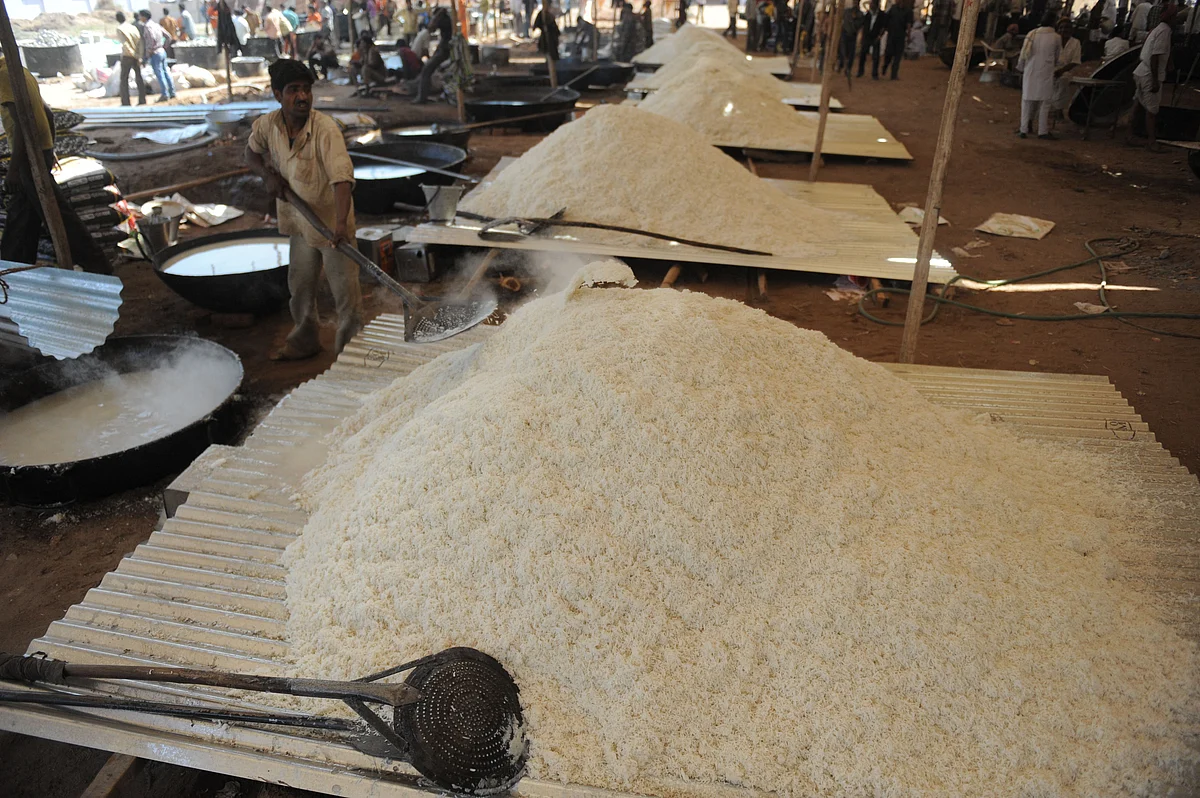Flood-Hit India, Pakistan Face Rising Basmati Prices Amid Crop Losses
Heavy rains and widespread flooding in basmati rice-growing regions of India and Pakistan have raised concerns over output of the premium staple, driving prices higher as supplies are expected to fall.
India and Pakistan exclusively grow aromatic basmati rice, which sells for nearly twice the price of regular varieties and is primarily imported by Britain, the Middle East, and the United States.
Recommended For You Dubai: Gold prices slip from all-time high, 22K dips below Dh400 per gram Gold rally: Investors drive prices toward $5,000 amid instabilityFloods have severely affected the basmati rice crop, but with waters now receding, losses are expected to remain limited, provided there is no additional rainfall, said Nitin Gupta, senior vice president at Olam Agri India.
Stay up to date with the latest news. Follow KT on WhatsApp Channels.
India's northern states of Punjab and Haryana contribute over 80% of the country's total basmati rice production, while Pakistan's Punjab province accounts for more than 90% of its output.
Heavy rainfall in late August and earlier this month caused the Ravi, Chenab, Sutlej, and Beas rivers to overflow, flooding these regions.
Initial assessments indicate that crops such as paddy, cotton, and pulses on nearly one million hectares were affected in Punjab and Haryana, said an Indian government official.
In Pakistan's Punjab province rice, sugarcane, corn, vegetables, and cotton on thousands of hectares were submerged earlier this month.
The floods have hit farmers hard, just as crops such as basmati rice and cotton were nearing harvest, said Ibrahim Shafiq, export manager at Latif Rice Mills Pvt Ltd.
In India and Pakistan, paddy seedlings are usually transplanted in June–July, with harvesting starting in late September.
The industry was expecting a bumper crop, but the damage is likely to reduce supplies and push basmati rice prices higher, Shafiq said.
"Conservative estimates put the damage at 20% of basmati rice grown in Pakistan...This would definitely drive up the price for basmati rice in local markets as well as international markets," Shafiq said.
Traders have raised prices by $50 per ton over the past week, and they could rise further if supply shortages remain significant by the end of the harvest, said Gupta of Olam.
However, some industry officials, including Karachi-based Chela Ram Kewlani, say the current price rise is temporarily fuelled by reports of crop damage and is expected to ease once supplies from the new season's harvest arrive.

Legal Disclaimer:
MENAFN provides the
information “as is” without warranty of any kind. We do not accept
any responsibility or liability for the accuracy, content, images,
videos, licenses, completeness, legality, or reliability of the information
contained in this article. If you have any complaints or copyright
issues related to this article, kindly contact the provider above.
Market Research

- Gas Engine Market Analysis: Strong Growth Projected At 3.9% CAGR Through 2033
- Daytrading Publishes New Study On The Dangers Of AI Tools Used By Traders
- Excellion Finance Launches MAX Yield: A Multi-Chain, Actively Managed Defi Strategy
- United States Lubricants Market Growth Opportunities & Share Dynamics 20252033
- ROVR Releases Open Dataset To Power The Future Of Spatial AI, Robotics, And Autonomous Systems
- Blackrock Becomes The Second-Largest Shareholder Of Freedom Holding Corp.



















Comments
No comment